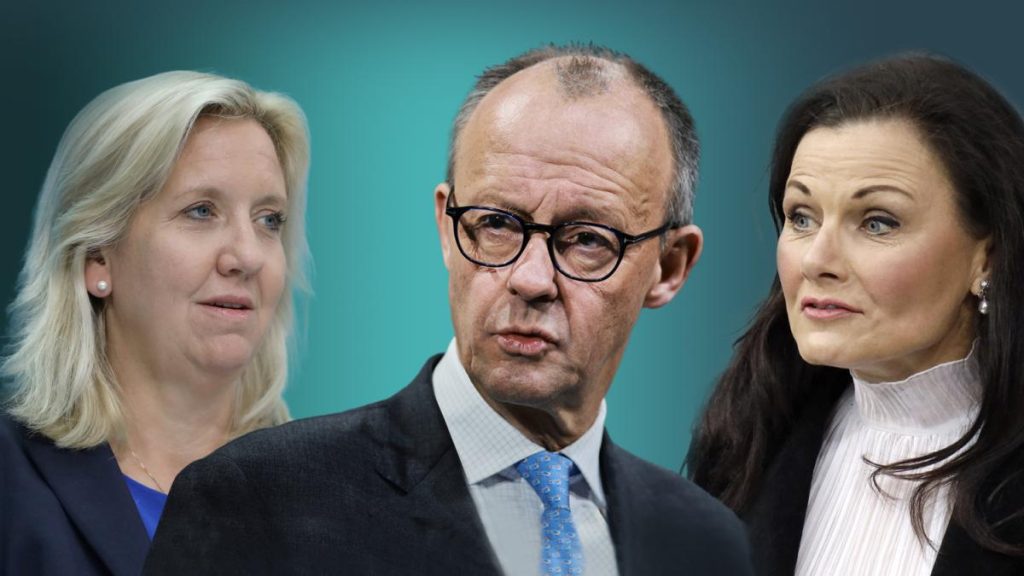A few weeks of turmoil within the CDU led to speculation that the party would regress amidst power struggles before and after the 2021 federal election. With Carsten Linnemann’s promotion to General Secretary, his previous position as Vice Chairman in the party’s executive committee is now vacant. This sparked hopes of a reshuffle and advancement within the party’s ranks for some members. However, these hopes were dashed as there will likely be no open power struggle at the upcoming party congress in Berlin. Despite Chairman Friedrich Merz’s pledge to increase the party’s female representation, two influential party women, Gitta Connemann and Ines Claus, have faced setbacks in internal competition.
Connemann, head of the Middle Stand and Business Union (MIT), will not be vying for a position in the executive committee as previously expected. Similarly, Claus, the leader of the Hessian CDU parliamentary faction, has withdrawn her bid for the Vice Chairman role. The failure of these women to advance within the party has led to bitter disappointment among female party members who feel that the “boy group” has triumphed once again. However, it was the party women themselves who hindered each other’s progress in the race for positions.
Merz and General Secretary Linnemann have achieved one of their key goals for the party congress: ensuring smooth transitions in leadership roles. Instead of contentious battles for top party positions in Berlin, a sense of unity within the party is likely to be maintained. The power struggles within the Union, which escalated between 2019 and 2021 and contributed to the party’s election defeat, have left a deep impact on the CDU. The lack of prominent female figures within the party has been a longstanding issue that Merz must address to combat the perception of the CDU as a male-dominated party.
The dominance of male figures in the party leadership, including Merz and Linnemann, has raised concerns about the lack of balance between the economic and social wings of the CDU. The appointment of Karl-Josef Laumann, representing the party’s social wing, to a key role in the party hierarchy is seen as a counterbalance to the economic focus associated with Merz. While the CDU aims to address the concerns of inflation-hit Germans, a strong emphasis on economic interests may not be sufficient to win elections.
The unsuccessful bids of Connemann and Claus highlight the challenges faced by female party members in advancing their positions within the CDU. The appointment of Laumann to a prominent role in the party’s leadership demonstrates a concerted effort to diversify the party’s representation and address the concerns of different factions within the CDU. The internal struggles within the party highlight the importance of unity and cooperation in achieving the CDU’s goals in the upcoming political landscape.


